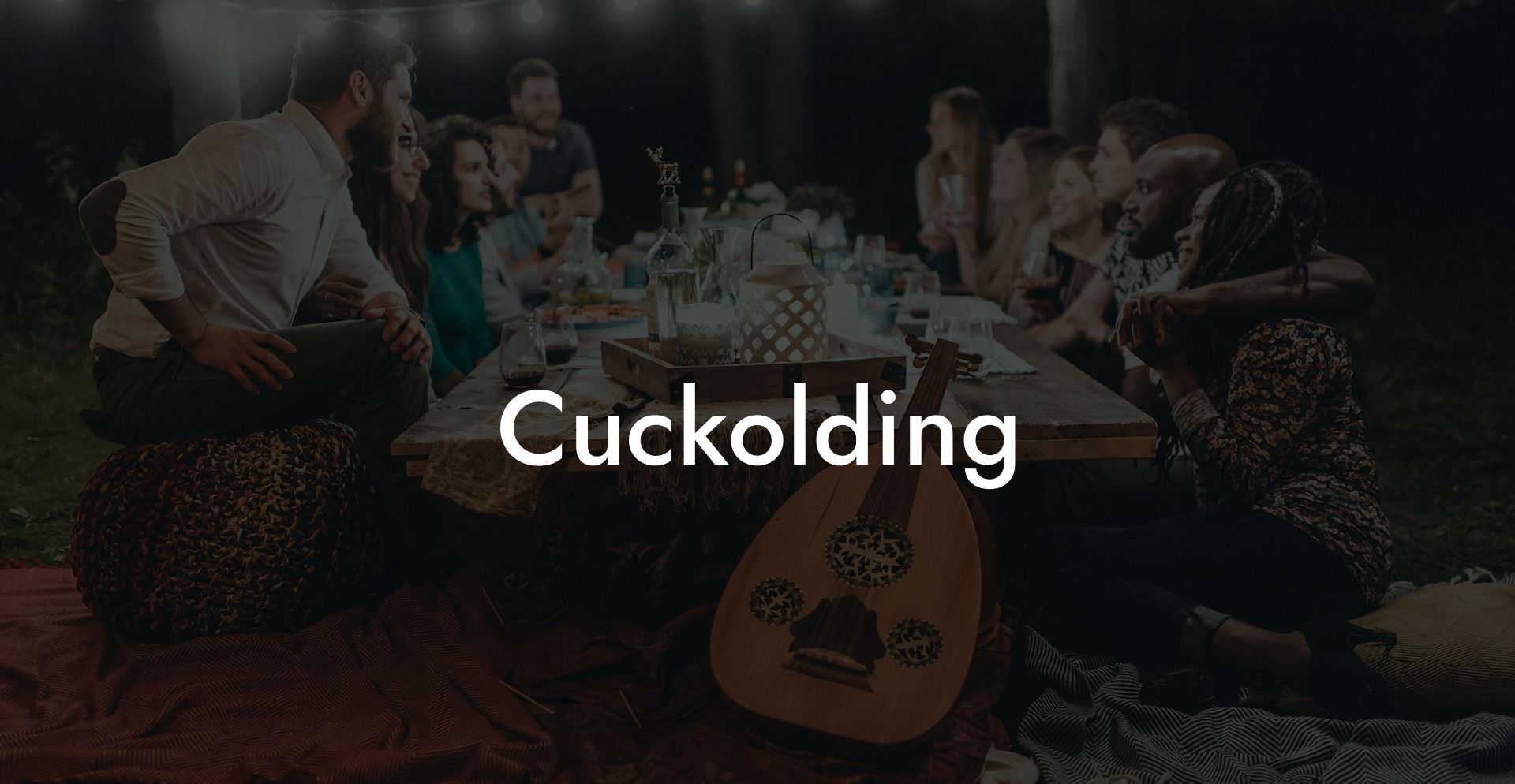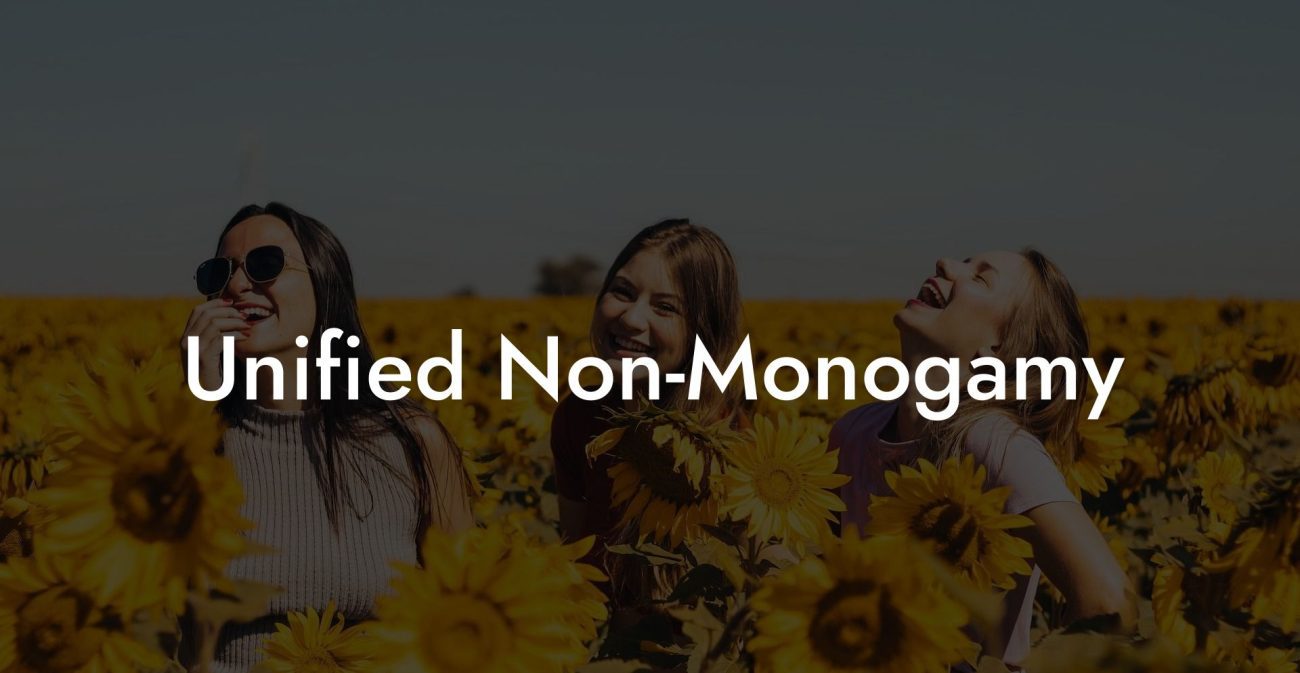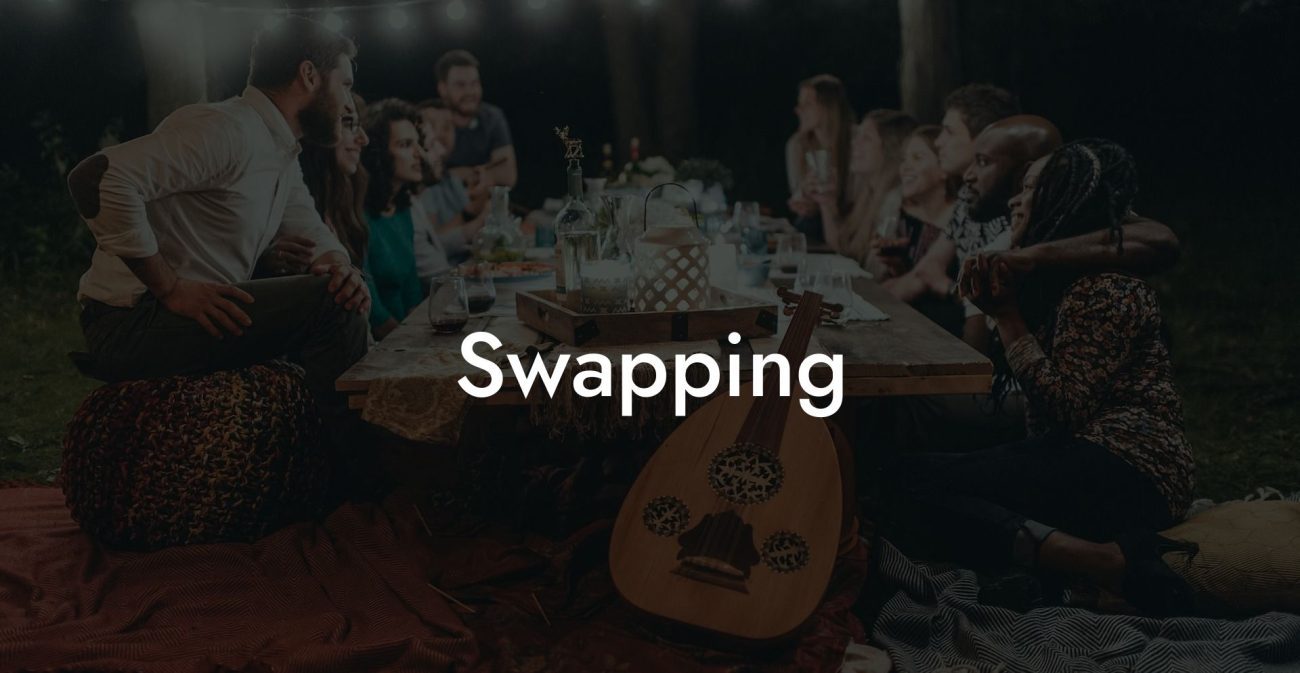Cuckolding

Ever wondered what it feels like to have your partner’s adventures become a source of secret satisfaction rather than insecurity? Imagine a relationship dynamic where the traditional script is flipped, and watching your partner explore their desires actually fuels your own excitement! Enter cuckolding—a term that, despite its provocative reputation, is rapidly being redefined within the realm of ethical non monogamy. Buckle up as we dive into the world of cuckolding, unpacking its origins, core principles, emotional dynamics, benefits, challenges, and practical strategies. Get ready for an engaging, humorous, and enlightening journey into a lifestyle that’s as bold as it is consensual.
Have you ever wondered if monogamy is just a stupid little experiment? Open relationships, polyamory, relationship anarchy...find out which relationship dynamic suits you best with our one minute relationship test. See if you are just conforming to "societal norms". Reveal your truth >>
Quick Links to Useful Sections
- The Ethical Non Monogamy Term: Cuckolding
- What Is Cuckolding?
- Historical Context and Evolution
- Core Principles of Cuckolding in Ethical Non monogamy
- Mutual Consent and Open Communication
- Trust and Emotional Security
- Empowerment Through Sexual Autonomy
- Everyday Dynamics of a Cuckolding Relationship
- Setting the Stage
- Daily Practices and Communication
- Benefits of a Cuckolding Dynamic
- Enhanced Sexual Variety
- Deepened Trust and Communication
- Personal Empowerment and Growth
- Challenges in a Cuckolding Dynamic
- Managing Jealousy and Insecurity
- Setting and Maintaining Clear Boundaries
- Dealing with External Judgment and Stigma
- Balancing Time and Emotional Energy
- Practical Strategies for a Successful Cuckolding Experience
- Prioritize Open, Ongoing Communication
- Establish and Document Clear Boundaries
- Invest in Self-Care and Personal Empowerment
- Foster a Supportive Community
- Utilize Digital Tools for Organization
- Frequently Asked Questions (FAQ)
- Resources and Community Support: Your Next Steps
The Ethical Non Monogamy Term: Cuckolding
What Is Cuckolding?
Cuckolding is a consensual arrangement where one partner (traditionally the man) derives sexual or emotional satisfaction from knowing that his partner (traditionally the woman) is engaging in sexual encounters with other people. However, modern interpretations have expanded beyond gender norms, and today cuckolding can refer to any situation where a partner finds arousal and fulfillment in their loved one’s sexual exploration, with all parties fully aware and supportive.
At its heart, cuckolding is about embracing the idea that a relationship can thrive on the honest sharing of desires. It requires an enormous amount of trust, communication, and self-awareness. Rather than being driven by jealousy or insecurity, many participants in cuckolding dynamics report experiencing heightened levels of excitement, empowerment, and even compersion—the joy of seeing a partner happy with someone else.
Historical Context and Evolution
While the modern term “cuckolding” might evoke images of taboo and shame, the practice itself has deep historical roots. Throughout history, various cultures have witnessed non-monogamous arrangements where the idea of sharing one’s partner was either ritualized or used as a tool of power and social control. In many ancient societies, cuckolding was not seen as inherently negative but was woven into the fabric of relationships as a means to assert dominance, demonstrate wealth, or secure alliances.
Looking For Some Amazing Hot Wife Content? You will love the YummyCouple. If you're into real MILFs & real orgasms this OnlyFans Content Creator is For You. Click here to find out more
In recent decades, however, the narrative has shifted. Today, cuckolding is reclaimed as a consensual, ethical practice—a way for couples to explore alternative sexual dynamics while reinforcing their commitment. This modern approach is built on open communication, mutual consent, and a celebration of sexual autonomy, challenging the conventional “possessiveness” often associated with monogamous relationships.
Core Principles of Cuckolding in Ethical Non monogamy
Mutual Consent and Open Communication
The cornerstone of any successful cuckolding dynamic is mutual consent. Everyone involved must be fully aware of the arrangement and agree to it without coercion. This transparency lays the foundation for trust and ensures that the experience is empowering rather than demeaning.
- Honesty is Key: Open dialogue about desires, limits, and expectations is essential to navigate this dynamic successfully.
- Ongoing Consent: Consent isn’t a one-and-done checkbox—it’s an ongoing conversation that must be revisited regularly.
- Shared Understanding: All parties need to have a clear understanding of what cuckolding means for them, including the emotional and physical boundaries.
Trust and Emotional Security
Trust is the lifeblood of cuckolding. For the partner who enjoys watching their loved one with others, trust must extend beyond mere acceptance—it has to be genuine, deep-rooted, and resilient. This trust allows each person to explore their sexuality freely, knowing that their primary relationship remains secure.
- Building Trust: Trust is developed over time through consistent, respectful behavior and honest communication.
- Emotional Reassurance: Regular check-ins and affirmations of commitment can help mitigate any lingering insecurities.
- Shared Vulnerability: Opening up about fears and desires reinforces the bond, turning what could be a source of conflict into an opportunity for deeper intimacy.
Empowerment Through Sexual Autonomy
One of the most liberating aspects of cuckolding is the empowerment that comes from allowing your partner to explore their sexual desires openly. For many, this dynamic transforms traditional notions of possessiveness into a celebration of sexual freedom and mutual empowerment.
- Celebrating Sexuality: Embrace the idea that sexual pleasure is abundant and that sharing this joy can enhance the emotional connection.
- Individual Fulfillment: Both partners have the opportunity to explore their desires and grow individually, contributing to a richer, more dynamic relationship.
- Breaking Taboos: Redefining cuckolding in a consensual and ethical way challenges societal norms and promotes a healthier view of non-monogamous practices.
Everyday Dynamics of a Cuckolding Relationship
Setting the Stage
In a typical cuckolding scenario, the couple sets clear expectations and boundaries from the start. This might include agreeing on how often external encounters occur, what details are shared, and how each partner will manage their emotions. For many, this planning phase is a time of excitement and anticipation, as it lays the groundwork for a fulfilling experience for everyone involved.
For example, a couple might decide to have a “cuckold night” once a month, during which the hotwife meets with a pre-approved partner while the other partner either enjoys a solo night of self-care or engages in a shared activity that reinforces their bond. The key is that every detail is discussed and agreed upon, ensuring that all parties feel secure and respected.
Daily Practices and Communication
Beyond the scheduled encounters, everyday communication remains essential. Partners should regularly discuss their feelings, celebrate each other’s successes, and address any concerns as they arise. Over time, this continuous dialogue builds a robust framework where even challenging emotions like jealousy can be managed constructively.
- Regular Check-Ins: Daily or weekly conversations help ensure that no one’s feelings are neglected.
- Shared Experiences: Celebrate milestones, both big and small, to reinforce the primary bond.
- Digital Updates: Some couples use messaging apps to share positive experiences and keep each other informed, turning potential insecurities into shared moments of joy.
Benefits of a Cuckolding Dynamic
Enhanced Sexual Variety
Cuckolding opens up a world of sexual variety. For the hotwife, it’s an opportunity to explore her desires and experiment with different partners in a supportive, consensual environment. For the other partner, watching or knowing that their loved one is experiencing pleasure can be an intensely arousing and affirming experience.
- Expanded Horizons: Couples can break out of routine sexual patterns and explore new fantasies.
- Increased Arousal: Many report that knowing their partner is desired by others adds an extra layer of excitement to their relationship.
Deepened Trust and Communication
When managed ethically, cuckolding can lead to deeper trust and enhanced communication. The process of negotiating boundaries and regularly checking in helps build a robust foundation of transparency and mutual respect.
- Stronger Bonds: Honest discussions about boundaries and desires strengthen the emotional connection between partners.
- Conflict Resolution: Addressing potential issues proactively reduces misunderstandings and fosters long-term relationship stability.
Personal Empowerment and Growth
Embracing cuckolding can be incredibly empowering. It encourages both partners to challenge traditional notions of possessiveness and to celebrate sexual autonomy. This empowerment can lead to significant personal growth as individuals learn more about their own desires and emotional responses.
- Self-Discovery: Exploring non-traditional dynamics can reveal new aspects of your sexuality and personal identity.
- Increased Confidence: Successfully navigating a cuckolding arrangement can boost self-esteem and reinforce the idea that love and desire are abundant.
Challenges in a Cuckolding Dynamic
Managing Jealousy and Insecurity
Even with clear boundaries and mutual consent, feelings of jealousy or insecurity can sometimes arise. These emotions must be acknowledged and managed constructively.
- Open Dialogue: Address any negative feelings as soon as they appear, using non-judgmental language.
- Self-Reflection: Understand the root causes of your jealousy and work on them through mindfulness or therapy.
Setting and Maintaining Clear Boundaries
One of the most crucial aspects of cuckolding is setting clear boundaries that protect the primary relationship while allowing for external encounters. This negotiation process can be complex and may require ongoing adjustments.
- Consistent Review: Regularly revisit your agreements to ensure they continue to work for everyone involved.
- Flexibility: Be willing to adapt boundaries as needs evolve, while keeping the overall well-being of the relationship in mind.
Dealing with External Judgment and Stigma
Despite the growing acceptance of ethical non monogamy, cuckolding can still attract judgment from those who hold traditional views. This external stigma can sometimes cause stress and force couples to hide aspects of their lifestyle.
- Community Support: Connect with like-minded individuals and supportive communities to help normalize your experiences.
- Educate Others: When possible, share your story to challenge outdated notions and reduce stigma.
Balancing Time and Emotional Energy
Managing a cuckolding dynamic requires a careful balance of time and emotional energy. It’s vital to ensure that external encounters do not overshadow the primary relationship.
- Time Management: Use calendars and scheduled check-ins to ensure quality time for your core relationship.
- Emotional Prioritization: Continuously reaffirm the importance of your primary bond through thoughtful gestures and regular communication.
Practical Strategies for a Successful Cuckolding Experience
Prioritize Open, Ongoing Communication
Communication is the foundation of a successful cuckolding dynamic. Ensure that you have regular, honest conversations about your feelings, boundaries, and experiences.
- Regular Check-Ins: Schedule weekly or bi-weekly discussions to update each other on your emotional state and any concerns.
- Use “I” Statements: Express your emotions using “I” statements to foster a non-confrontational dialogue.
- Active Listening: Practice active listening by reflecting on your partner’s words and ensuring mutual understanding.
Establish and Document Clear Boundaries
Creating a written agreement that outlines your boundaries can help prevent misunderstandings and serve as a reference for future discussions.
- Define Frequency: Clearly outline how often external encounters are acceptable.
- Specify Details: Agree on what details about external encounters will be shared with the primary partner.
- Review Periodically: Set a schedule for reviewing and updating your boundaries to keep them aligned with your evolving needs.
Invest in Self-Care and Personal Empowerment
Taking care of yourself is crucial when navigating the complexities of cuckolding. Self-care helps maintain your emotional balance and reinforces your sense of self-worth.
- Mindfulness and Meditation: Regular mindfulness practices can help you manage stress and stay centered.
- Physical Activity: Exercise and other physical activities can boost your mood and energy levels.
- Hobbies and Interests: Pursue activities that make you happy and allow you to grow as an individual.
Foster a Supportive Community
Connect with others who understand and embrace ethical non monogamy. A supportive community can offer invaluable advice, share experiences, and help you feel less isolated.
- Join Online Forums: Engage with communities on platforms like r/polyamory to share your experiences.
- Attend Meet-Ups: Look for local events or workshops on ethical non monogamy to connect with like-minded individuals.
- Peer Support: Develop friendships with others who practice cuckolding or similar dynamics to exchange tips and provide mutual encouragement.
Utilize Digital Tools for Organization
In our fast-paced digital age, leveraging technology can help keep your cuckolding arrangement running smoothly.
- Shared Calendars: Use a shared digital calendar to schedule dates, check-ins, and external encounters.
- Group Messaging: Maintain an open line of communication using messaging apps to keep everyone informed and connected.
- Digital Agreements: Document your boundaries and regularly update them using collaborative tools like Google Docs.
Frequently Asked Questions (FAQ)
1. What does cuckolding mean in ethical non monogamy?
Cuckolding is a consensual arrangement in which one partner derives pleasure—emotional, sexual, or both—from knowing that their partner is engaging in sexual encounters with others, with full consent and often encouragement from both sides.
2. How is cuckolding different from infidelity?
Unlike infidelity, cuckolding is based on mutual consent, transparency, and clearly defined boundaries. Every party involved is aware of and agrees to the arrangement.
3. What are the main benefits of a cuckolding dynamic?
Benefits include increased sexual variety, enhanced trust and communication, personal empowerment, and the opportunity to explore desires without compromising the primary relationship.
4. What challenges might arise in a cuckolding arrangement?
Common challenges include managing jealousy and insecurity, establishing and maintaining clear boundaries, and coping with external stigma or misunderstandings.
5. How important is communication in cuckolding?
Communication is absolutely essential. Regular check-ins, open discussions about boundaries, and honest expression of feelings are critical to ensure that the arrangement remains healthy and mutually satisfying.
6. Can both partners benefit emotionally from cuckolding?
Yes, when managed properly, both partners can experience emotional fulfillment—one through the thrill of shared sexual exploration and the other through enhanced trust and empowerment.
7. How do I set boundaries in a cuckolding arrangement?
Establish boundaries by having open, honest discussions with your partner about your limits, expectations, and non-negotiables. Document these boundaries and review them periodically to ensure they remain effective.
8. What role does self-care play in a cuckolding dynamic?
Self-care is crucial for maintaining emotional balance. Engaging in mindfulness, pursuing personal interests, and taking time for physical well-being help you stay centered and manage the complexities of the arrangement.
9. How can I overcome jealousy in cuckolding?
Overcoming jealousy involves open communication, self-reflection, and sometimes professional guidance. Strategies like active listening, mindfulness practices, and discussing your insecurities with your partner can help mitigate these feelings.
10. Can cuckolding work for relationships of all types?
While traditionally associated with certain gender dynamics, cuckolding can be adapted to various relationship structures as long as all parties are fully informed, consenting, and committed to maintaining clear communication and respect.
11. What are some practical tools to manage a cuckolding arrangement?
Practical tools include shared digital calendars, messaging apps for regular check-ins, and written or digital agreements that outline boundaries and expectations.
12. Where can I find more information on ethical non monogamy and cuckolding?
Additional resources include books like The Ethical Slut by Dossie Easton & Janet Hardy, podcasts such as Multiamory and Polyamory Weekly, and online communities like r/polyamory.
Resources and Community Support: Your Next Steps
- The Ethical Slut by Dossie Easton & Janet Hardy – A seminal book that explores ethical non monogamy, including the dynamics and benefits of cuckolding.
- Podcasts: Listen to Multiamory and Polyamory Weekly for engaging discussions, real-life stories, and expert insights on managing non monogamous relationships.
- Online Communities: Join forums like r/polyamory to share experiences and seek advice from like-minded individuals.
- Workshops and Webinars: Attend events on relationship psychology and ethical non monogamy to deepen your understanding and build a supportive network.
- Therapy and Counseling: Consider professional guidance if you face persistent challenges or need help managing complex emotions within your cuckolding arrangement.
By exploring these resources and applying the practical strategies outlined in this guide, you can build a strong, respectful, and fulfilling cuckolding dynamic that enhances both your personal growth and the strength of your primary relationship. Embrace open dialogue, continuous learning, and self-care as you navigate this exciting and empowering facet of ethical non monogamy.
Lost & confused by all of the terms, types and seemingly made up 3 letter acronyms?? We've got you. Check out our Ethnical Non-Monogamy Dictionary >>
Useful Interruption: Not sure which relationship vibe fits you best? Take our Relationship Test, it’ll give you the real insight into your natural relationship style. Then, dive into our binge-worthy guides (from the tried-and-true to the “wait, that’s a thing?”) and find the perfect relationship type for your life:
- Monogamy
- Open Relationships
- Ethical Non-Monogamy
- Solo Polyamory
- Non-Hierarchical Polyamory
- Hierarchical Polyamory
- Relationship Anarchy
- Swinging
Now back to the main article but yeah take the test...












